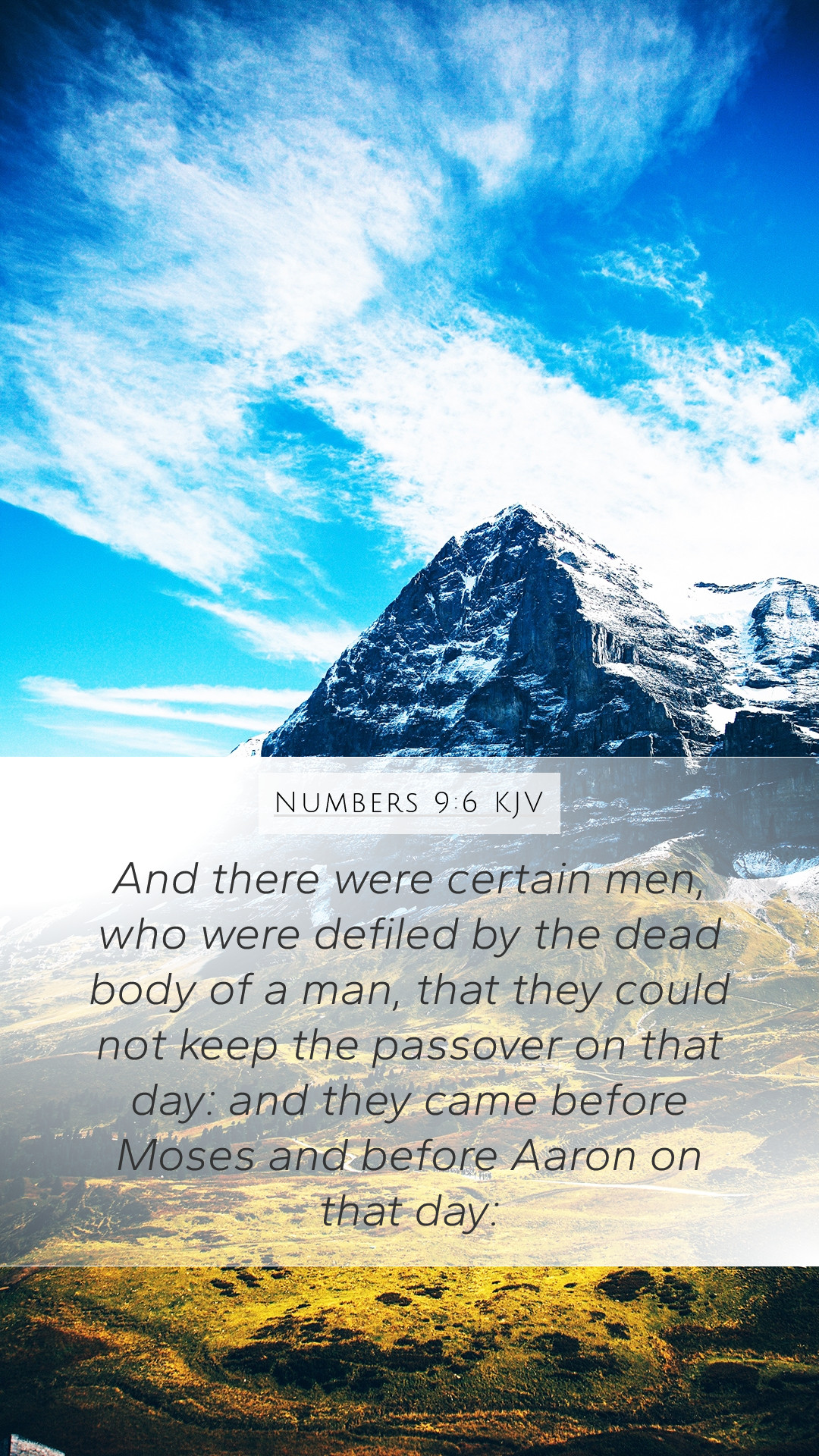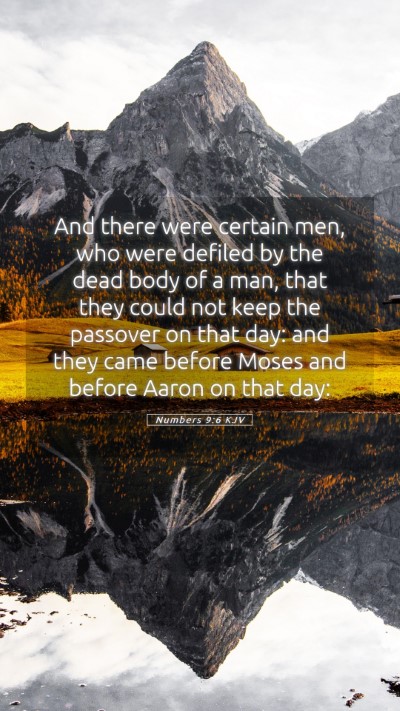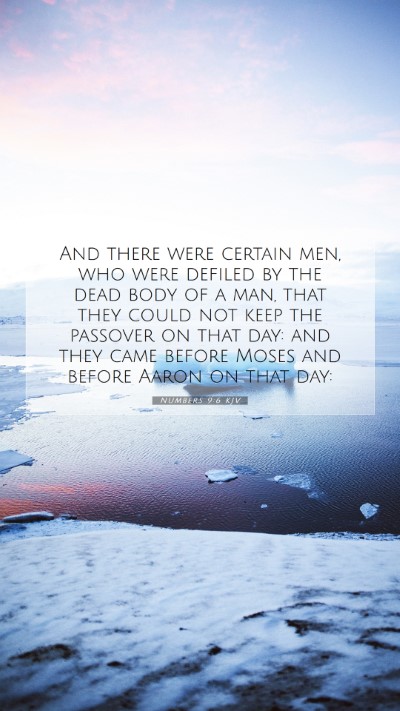Understanding Numbers 9:6
In this passage, Numbers 9:6 presents a significant moment for the Israelites, offering insights into their religious practices and the concept of ritual purity essential in the Old Testament. By examining the context and interpretations through various commentaries, we can deepen our comprehension of its meaning and implications.
Verse Context
Numbers 9:6 often represents the beginning of the Israelites' journey through the wilderness, highlighting the themes of obedience and divine command. The verse reads:
"And there were certain men who were defiled by the dead body of a man, so that they could not keep the passover on that day; and they came before Moses and Aaron on that day." (Numbers 9:6)
Commentary Insights
-
Matthew Henry's Commentary:
Matthew Henry identifies a critical situation where some men, rendered unclean due to contact with a dead body, could not partake in the Passover. This highlights the importance of adhering to the laws of purity and the communal aspect of worship.
-
Albert Barnes' Notes:
Barnes emphasizes the involvement of the individuals who approached Moses and Aaron, indicating their desire to fulfill God's command despite their current state of impurity. This illustrates a profound longing for connection with God and the importance of the Passover feast as a remembrance of deliverance.
-
Adam Clarke's Commentary:
Clarke points out the ceremonial restrictions imposed on the Israelites, stressing the gravity of keeping the Passover as a critical component of their covenant with God. He notes the compassion shown by Moses when these men speak up, opening the door for discussion about their predicament.
Key Themes
The thematic elements present in Numbers 9:6 can be summarized into the following key points:
- The Importance of Ritual Purity: Contact with the dead rendered individuals ceremonially unclean, preventing them from participating in the sacred Passover feast.
- Desire for Inclusion: The men’s approach to Moses and Aaron demonstrates their genuine desire to partake in communal worship despite their restrictions.
- Leadership and Compassion: Moses’ response opens the conversation for addressing exceptional cases, illustrating effective leadership.
Implications for Believers
For modern readers, this passage urges reflection on the value of communal worship and the inclusivity of faith practices. It invites believers to consider how they navigate restrictions in their worship and seek knowledge about adapting to their spiritual needs.
Cross References
- Exodus 12:43-49: Instructions for observance of the Passover.
- Leviticus 21:1-3: Laws about priestly purity concerning the dead.
- Numbers 9:10-11: Instructions for those who are unclean to keep the Passover on a different day.
Conclusion
In conclusion, Numbers 9:6 serves as a poignant reminder of the balance between ritual observance and compassionate understanding within the community of faith. The interpretation of this verse not only enhances bible verse meanings and bible verse interpretations, but it also enriches the context within which believers can explore bible study insights and engage with Biblical exegesis effectively.


